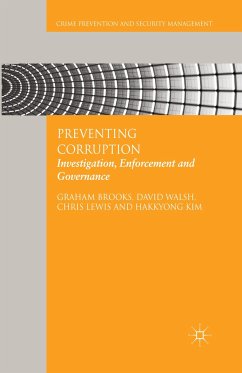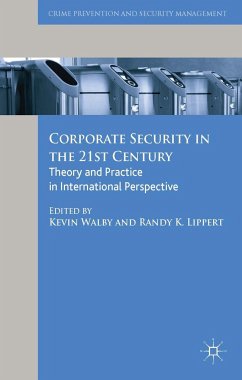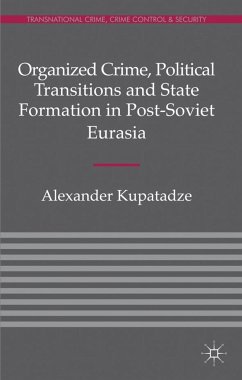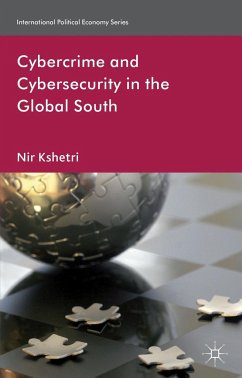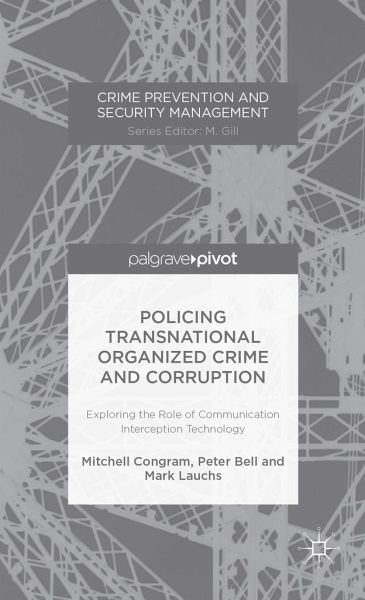
Policing Transnational Organized Crime and Corruption
Exploring the Role of Communication Interception Technology
Versandkostenfrei!
Versandfertig in 6-10 Tagen
38,99 €
inkl. MwSt.

PAYBACK Punkte
19 °P sammeln!
Examining the role of communication interception technology (CIT) in the investigation of transnational organised crime, the authors demonstrate that a proactive intelligence-led policing framework and a re-evaluation of the constraints of CIT are required to combat the international issue of corruption.






